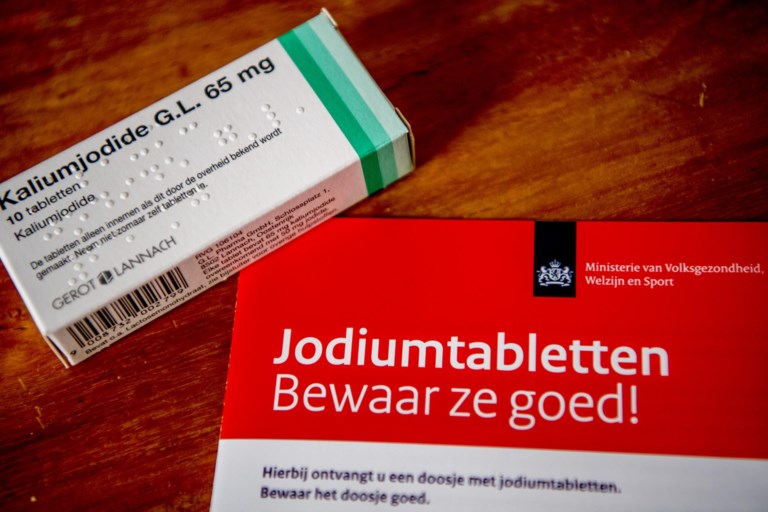On Monday, nearly 30,000 Belgian residents went to the pharmacy to get free iodine tablets, following reports of fighting near Chernobyl in Ukraine and nuclear threats from Russia. Authorities stress that the tablets should "under no circumstances" be taken preventively, or on one’s own initiative.
A total of 32,483 packs of iodine tablets were distributed in one day, the third-highest figure since measurements began in 2018, when the government launched an information campaign on nuclear risks and made iodine pills in pharmacies available free of charge, reports the Belga News Agency.
"Last year we delivered 9 doses of iodine tablets in a whole year," pharmacist Tom Philips (51) from Holsbeek in the Flemish Brabant province told Het Laatste Nieuws on Monday. "Today alone, I handed out 23."
However, the Federal Agency for Nuclear Control (FANC) stressed that "the current situation in Ukraine does not require iodine tablets. They are still freely available in pharmacies, but are not necessary in this specific case. Only take iodine on the recommendation of the authorities."
La situation actuelle en #Ukraine ne nécessite pas la prise de comprimés d'#iode. Ils restent gratuitement disponibles en pharmacie, mais ne sont pas nécessaires dans ce cas spécifique. Prenez uniquement de l'iode sur recommandation des autorités. https://t.co/Ck4jxKxGy9
— AFCN - FANC (@FANC_AFCN) February 28, 2022
When the news that fighting was going on near the Chernobyl nuclear power plant in Ukraine reached Belgium on Thursday, the rush to free iodine tablets began, Michael Storme of the Pharmacists' Association (APB) told Belga.
Then on Sunday came the news that Russian President Vladimir Putin was putting the country's nuclear deterrents on alert, which led to an even bigger rush on pharmacists.
The last time that Belgian residents flocked to pharmacies to pick up their free iodine tables dates back to the government's information campaign on nuclear risks in the spring of 2018.
How do iodine tablets work?
In the event of a nuclear explosion, radioactive iodine may be released which can enter the body through the airways or contaminated food. The thyroid gland stores iodine until it is saturated with it and would therefore cause radiation "from within."
By taking stable, or non-radioactive iodine – like the tablets given out by pharmacists – at the right time, you ensure that your thyroid gland is already saturated, which prevents the absorption of radioactive iodine, the FANC explained.
"Iodine tablets are medicines. Never take the tablets on your own initiative but wait until the government recommends it," the Agency reiterated, adding that intake must always be accompanied by seeking shelter.
Related News
- Permits granted for gas power plant in Manage, Wallonia
- Belgian energy minister calls for EU-wide gas price cap
- Ukraine war, day 6: Russian convoy moves on Kyiv
Depending on someone's age, a different dose is needed, as explained in the tablets' information leaflet. In principle, iodine tablets are only used once: on the day that it is recommended.
People over 40 years old and people with thyroid and/or heart disease or those who are hypersensitive to iodine are requested to discuss the possible use of the tablets with their attending physician or specialist beforehand, as it may have a toxic effect on them.
The iodine tablets are distributed in a pack of ten pills, enough for a family of four. If they are stored correctly, the tablets remain usable for at least 10-15 years after the production date (which is printed on the package).

